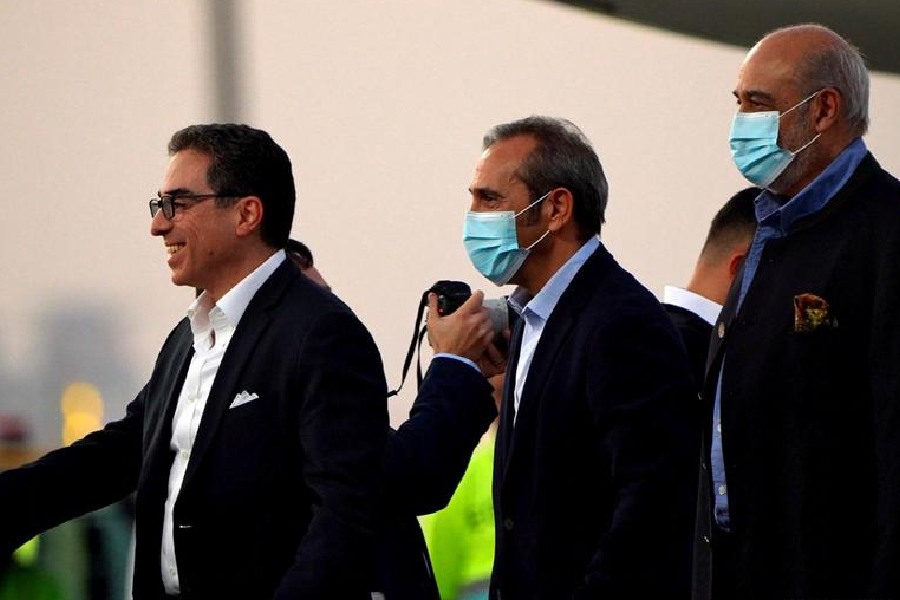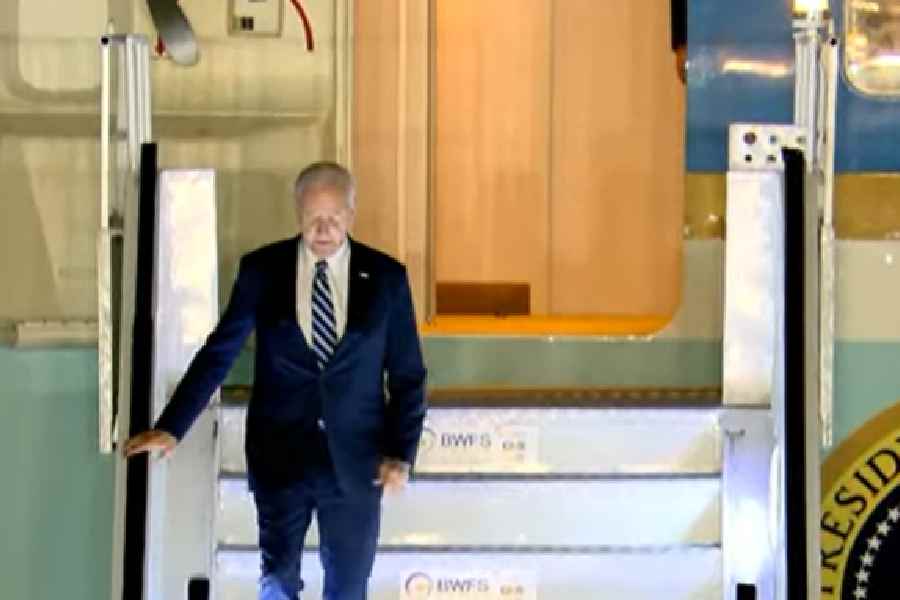Regardless of how far relations between two states deteriorate, most nations are usually still able to negotiate prisoner swaps. This includes archrivals Iran and the US, who broke off diplomatic ties after the 1979 Iran hostage crisis.
At best, this week's exchange of 10 prisoners — where Qatar acted as mediator — is remarkable for its high number of swaps. Successful prisoner swap deals between Washington and Teheran have been brokered before. In 2019, Iran released US history scholar Xiyue Wang to the United States, then under the Trump administration. The Princeton University PhD student had been arrested in Iran in 2016. Following charges of espionage, a revolutionary court sentenced him to 10 years in prison in April 2017. Wang spent part of his sentence in underground cells at the notorious Evin high-security prison.
Iran's foreign minister at the time, Javad Zarif, had initiated Wang's exchange in April 2019. He wanted to use the deal to release Iranian citizens being held in US prisons for violating sanctions against Iran.
Fear of emboldening others
At first, the United States declined Tehran's offer out of principle. Washington faced a moral dilemma, as it feared a successful prisoner exchange could put US citizens living abroad at risk. Iran repeatedly detains dual nationals or US citizens to use as bargaining chips for political purposes.
In December 2019, following Swiss mediation, the US and Iran agreed to exchange Wang for imprisoned Iranian stem cell scientist Masoud Soleimani.
Several weeks earlier, two Australian travel bloggers were released from Evin prison — they, too, had been charged with espionage. In return for the bloggers, Canberra released Iranian academic Reza Dehbashi Kivi, whose extradition had been requested by the United States.

Between a rock and a hard place: US president Biden has much to consider when agreeing to prisoner exchanges Deutsche Welle
Kept in the dark
As a rule, the public is generally not privy to the details of such agreements between states. In the current case, which is particularly substantial with 10 prisoners involved, a financial component also plays a role. Following the most recent prisoner swap, Tehran will be able to access $6 billion (€5.6 billion) worth of assets currently frozen in South Korea due to sanctions against Iran.
Prisoner swaps usually take place when such a step appears beneficial. It can serve as a confidence-building exercise between hostile states. High-ranking US officials are skeptical the most recent exchange will be able to accelerate talks to limit Iran's nuclear program the way Washington had hoped.
During the Cold War, when spies were frequently arrested on both sides of the Iron Curtain, the US and the Soviet Union repeatedly exchanged prisoners without significantly affecting relations.
Others stand to benefit
Iran is not the only state whose judiciary is controlled by ruling powers that arrest foreign citizens to use as political leverage. In December 2022, the exchange of two-time US Olympic gold medalist Brittney Griner dominated headlines.
The basketball player was arrested in Russia after cannabis oil was allegedly found in her luggage. The price for her return was high, with the WNBA star being exchanged for former Russian arms dealer Viktor But, who has often been referred to as the "merchant of death" by the media.
Those who remain in Russian custody include US citizen Paul Whelan, who was arrested in 2018 on charges of espionage and is currently serving a 16-year prison sentence. He was sent to a Russian penal camp, in part because a USB stick found in his hotel room allegedly contained a list of cadets from a Russian military school.
Following basketballer Griner's release, speaker for the US State Department Ned Price left no doubt the US would also bring Whelan home as part of a prisoner exchange. "Our message to Paul [Whelan], our message to every American who is wrongfully detained is: 'Hang tight. Keep the faith. We'll come to get you,'" Price said in a press briefingat the time.
Criticizing buyouts
The fact the most recent deal between Moscow and Washington did not lead to Whelan's release has been met with criticism in the US, especially from opposition Republicans. The terms and conditions of prisoner exchanges vary greatly. In 2019, the media reported that Russian authorities had offered 15 US citizens in return for arms dealer Viktor But. But last year, the return of one famous basketball player seems to have sufficed for Washington.

Five Iranian prisoners being held in US jails on charges of violating US sanctions were also freed as part of a recent exchange Deutsche Welle
Deals like these between the US and Russia also have consequences for Western partners, who are obliged to pay similar "prices." Sometimes agreements involve multiple states. According to media reports, the Kremlin is demanding Washington extradite Vadim Krasikov, the so-called Tiergarten murderer who is currently being held in custody in Germany. It is unclear if Berlin is open to such a deal.
Beyond trading prisoners of war, haggling over political prisoners has a far more extortive quality. The current prisoner exchange deal between Tehran and Washington isn't without controversy, even in the US. British news outlet the BBC reported that one US Republican senator called the deal "ransom to the world's worst state sponsor of terrorism." However, in conjunction with the prisoner deal, the US government has also imposed new sanctions on Iran.











